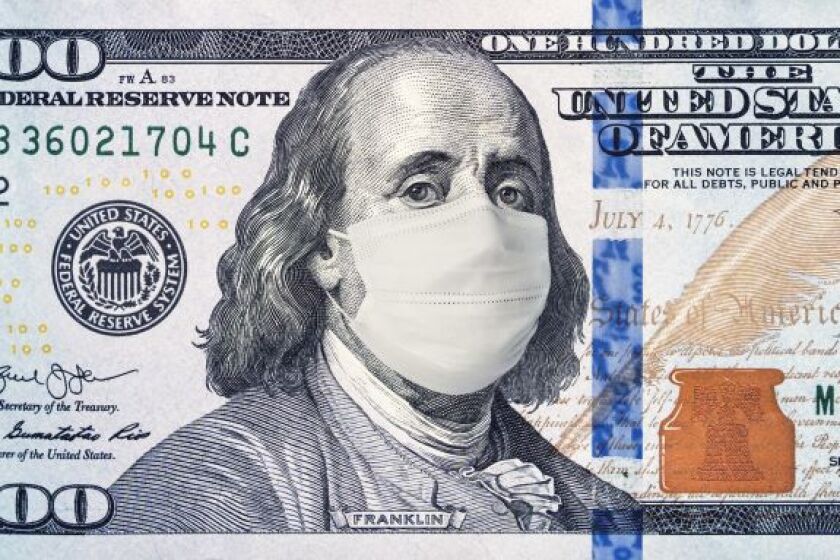China’s foreign exchange reserves rose by $30.8bn — or 1% — to reached $3.09tr by the end of April, beating consensus forecast. The increase was the largest for a single month since March 2014, according to data released by the People’s Bank of China (PBoC).
The country’s forex reserves fell in both February and March. A spokesperson for the State Administration of Foreign Exchange said the pick-up in April was due to a number of factors, including changes in exchange rates and asset prices.
*
China’s exports grew by 3.5% year-on-year in April in dollar terms, an improvement from the 6.6% contraction in March. However, imports dropped by 14.2% year-on-year, widening the trade surplus to $45.3bn in April from $19.9bn in March, according to data published by China’s General Administration of Customs on Thursday.
The strong exports growth was above market expectation.
“We believe the surprisingly high year-on-year export growth in April is not sustainable, as it was mainly the result of fulfilling the backlog built up due to slow business resumption in the first quarter and a surge in exports of antivirus medical supplies,” Ting Lu, chief China economist at Nomura, wrote in a Thursday note.
Exports to Japan jumped by 33%. Exports to the European Union contracted by 4.5%, but this showed an improvement from the 11.3% contraction in March. Exports growth to the US turned positive at 2.2% in April from a negative 20.8% in March.
*
The Caixin Services Purchasing Managers’ Index (PMI) rose to 44.4 in April from 43 in March, below market expectations.
“The Caixin services PMI pointed to continued weakness in the services sectors in April,” Maggie Wei, a China economist at Goldman Sachs, wrote in a Thursday note. “While the virus control measures were eased, services activity recovery is still lagging behind and consumption is under increased downward pressures amid slower wage growth and higher unemployment.”
*
China has given its local governments an additional Rmb1tr of quota for issuance of special purpose bonds to fund infrastructure projects, on top of the previously assigned Rmb1.29tr.
The announcement was made at a State Council meeting held this week, and came after a statement from the Ministry of Finance a couple of weeks ago that local governments will officially get the additional limits “soon”.
*
The PBoC plans to issue Rmb30bn of renminbi bills in Hong Kong on May 14. Of those, Rmb20bn will be three month bills, while Rmb10bn will have a maturity of one year.
*
The chairman of the Hong Kong Monetary Authority, Eddie Yue, said that the Bond Connect daily turnover during the Covid-19 pandemic was three times more than what was seen over the same period last year. He was speaking at an online roundtable held by Caixin Global, the onshore media agency said.
He also said that the the northbound inflow through the Shanghai-Hong Kong Stock Connect and the Shenzhen-Hong Kong Stock Connect doubled in the past three months compared to a year ago.
*
China may not set a specific growth target for 2020 at the “Two Session” meetings, Bloomberg reported. The meetings are scheduled to be held on May 21 and 22, after a two-month delay due to the Covid-19 pandemic.
The country’s economy grew by 6.1% in 2019, within the target of 6% to 6.5%. Its GDP shrank by 6.8% in the first three months of 2020 because of the pandemic — the first quarterly contraction since records began in 1992.
*
HSBC plans to increase its stake in its life insurance joint venture in China to 100%, after the country removed ownership restrictions on foreign-funded life insurance companies at the beginning of the year.
HSBC Insurance (Asia) currently owns 50% of the JV, HSBC Life Insurance Co, but has agreed to buy the remaining equity interest from its partner, the National Trust, pending regulatory approvals, the bank announced on Monday.
*
The China Banking and Insurance Regulatory Commission (CBIRC) has expanded funding sources for commercial bank’s asset investment companies (AICs) to invest in debt-for-equity swaps, according to a policy document published on Wednesday.
Qualified retail investors, insurance funds and pension funds will be allowed to invest in these investment plans set up by banks’ AICs. That said, the threshold for investors to invest in these debt-for-equity swaps plans are higher than for other asset management products due to the higher risk.
Before the new rules, AICs mostly used funds raised from interbank lending, borrowed from their parent banks or their own capital, to invest in debt-for-equity swaps.
*
On average, China’s banking sector has buffers to absorb worsening asset quality due to the Covid-19 pandemic, S&P Global Ratings said in a report on Tuesday. Some banks might report losses, it said, but the longer-term banking industry and economic trends should remain stable.
It expects the average provision coverage for China's reported non-performing loans — including for policy banks — to drop slightly to about 190% in 2020 from roughly 200%.

